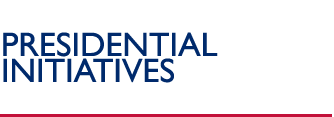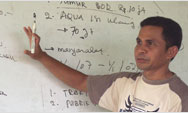Central American Free Trade Agreement Initiative

The Central American Free Trade Agreement (CAFTA) initiative, announced by President Bush in January 2002, improves the ability of Central American countries to compete in the modern global economy. Working in tandem with the Office of the U.S. Trade Representative, USAID is assisting in Central America's transition to free trade by building capacity with governments and the private sector through technical assistance and training.
- Nearly 48,000 farmers, micro-entrepreneurs, and small and medium-sized businesses received training that helped make their products and services more competitive in local, regional, and global markets.
- Five Central American countries received over $53 million in training and technical assistance. This assistance has helped their governments to better facilitate trade flows, enabling their private sectors to compete more effectively in the global marketplace.
- The USAID Regional Quality Coffee Program facilitated the export of nearly 1,200 tons of quality coffee, which commanded premium prices in global markets. Over 40 percent of this coffee was purchased from third-party-certified environmentally, socially, and economically responsible producers.

Better Coffee Beans Mean Better Prices
Fifty-two-year-old Doña Paula Antonia Ortíz owns a small coffee farm in the Cordillera del Cacahuatique region of eastern El Salvador. She produces several types of coffee beans, including the coveted Bourbon and Arabica varieties.
Her coffee trees are on steep slopes common to the area and are well shaded by native tree species.
Her family conducts all production activities. Doña Paula oversees the entire harvesting procedure, paying particular attention to the quality of the beans to be washed and dried. The family learned to produce quality coffee in USAID-funded workshops conducted by the Ciudad Barrios Cooperative of Coffee Producers, of which they are members.
Doña Paula is regularly congratulated for consistently supplying superb beans. Consequently, she is paid a higher price for her coffee, as coffee buyers are willing to pay a premium for the quality she produces.
In 2004, Doña Paula's family participated in the Cooperative's coffee competition sponsored by the Cooperative and USAID. Her coffee was awarded fifth place among the more than 100 coffees entered. Indeed, her coffees are now considered to be among the highest quality produced in the Cacahuatique region. The Ortíz family is able to obtain a sustainable income through the cultivation and processing of the coffee on their farm. Now, Doña Paula dreams of having a cell phone so she can check prices daily and be in better communication with the cooperative.
- Trade negotiations have been a major impetus in promoting reforms in environment, labor, efficiency, food safety, customs, and transparency in Central America.
- Small producers and farmers can successfully diversify production and compete internationally when provided with assistance to adopt improved production technologies, market linkages, and access to financing to start their operations. For example, production practices, such as planting at intervals and crop rotation, can substantially increase producers' incomes and improve cash flow throughout the year.
- To stimulate trade, it is crucial to provide in-depth, practical knowledge about market demands and trends. Central American businesses are able to expand more rapidly if they improve the design and packaging of their products; form more permanent business relationships with U.S. companies; shift from low-value products to higher quality, higher value exports; and improve their business management skills.
Note: Results for this initiative were reported through USAID's consolidated reporting system
Back to Top ^
|


